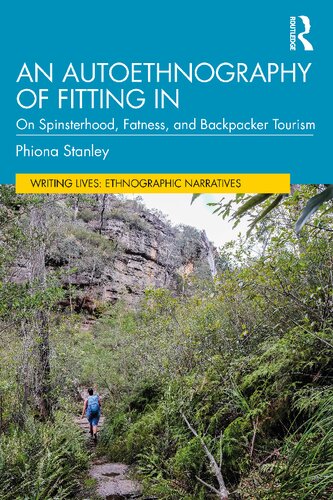

Most ebook files are in PDF format, so you can easily read them using various software such as Foxit Reader or directly on the Google Chrome browser.
Some ebook files are released by publishers in other formats such as .awz, .mobi, .epub, .fb2, etc. You may need to install specific software to read these formats on mobile/PC, such as Calibre.
Please read the tutorial at this link: https://ebookbell.com/faq
We offer FREE conversion to the popular formats you request; however, this may take some time. Therefore, right after payment, please email us, and we will try to provide the service as quickly as possible.
For some exceptional file formats or broken links (if any), please refrain from opening any disputes. Instead, email us first, and we will try to assist within a maximum of 6 hours.
EbookBell Team

4.8
104 reviewsAn Autoethnography of Fitting In: On Spinsterhood, Fatness, and Backpacker Tourism is a feminist narrative about the social rules of obedience and acquiescence to the norm – embodiment, heteronormativity, partnering – and about fitting in, or not, with those narratives.
Phiona Stanley explores a period through her twenties and thirties, living and travelling alone, foreign to herself and the countries of her travel in all regards: white, cisgender, sometimes thin, sometimes fat, sometimes partnered. This fascinating volume uses these lived experiences, depicted through first-person narrative storytelling, as a prism through which to understand the subtle, social rules of gendered normative expectations. It draws on contemporary journals, letters, and photos, and features process-oriented sections that focus on the methodological possibilities these offer, and on questions of verisimilitude and subjectivity. Set in the context of transnational work in Qatar, China, and elsewhere, and "road status" as negotiated and performed among long-term backpacker tourists, this book serves as an exemplar of how autoethnography can illuminate socio-cultural normativities and their effects – which are rarely explicit, but which nevertheless have great potential to harm – while problematizing and rethinking the meanings and semantic boundaries of weight, queerness, and (hetero)normativity.
Framed through reflexive autoethnography, with a strong focus on ethics and feminist theories, this book will appeal to students and researchers in autoethnography, qualitative methods, and gender and women's studies.